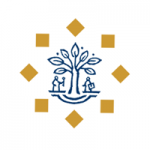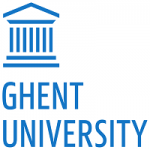项目介绍
Do you want to contribute to extending, applying, and disseminating methodologies for the application of adaptive network models to research problems in the social and behavioral sciences?
Your position
The PhD project will be supervised by Dr. Udo Böhm, Dr. Sophie C. F. Hendrikse, and Prof. Dr. Ir. Joris Mulder (Dept. of Methodology & Statistics).
This PhD project will focus on developing network architectures and simulation and fitting methods for adaptive network models and their application in social and behavioral sciences. Adaptive network models can be represented as systems of (stochastic) differential equations and are used to investigate the causal mechanisms underlying certain emergent phenomena. Due to the complexity of these models, simulation studies are typically used to understand the network dynamics. The natural domain of application of network models is the analysis of behavioral time series. Current fitting methods for adaptive network models typically rely on a combination of simulating network dynamics and iteratively optimizing model parameters. Numerically stable and efficient simulation methods, therefore, are an indispensable tool in research on adaptive network models. One goal of this project is to develop efficient simulation and fitting methods for adaptive network models and implement them in an existing software package. A further goal of the project is to develop new network architectures for modeling complex social and behavioral dynamics. The focus here will be on analyzing and modeling certain psychological phenomena from an adaptive network perspective.
Regular meetings with the supervisor will be scheduled to review and discuss the project’s advancement. The department fosters an open working culture, emphasizing mutual respect and appreciation among its members.
The project will be supervised by Dr. U. Böhm, Dr. S. C. F. Hendrikse, and Prof. Dr. Ir. J. Mulder.
Your responsibilities
- Your research work includes literature studies, modeling social and behavioral phenomena, developing and extending numerical and statistical methodologies, analyzing theoretical & practical properties, analyzing empirical data, developing statistical software, and writing research reports.
- You will prepare scientific articles to be published in international journals, present key findings at national and international scientific conferences, and write a dissertation.
- You will actively participate in the Department of Methodology and Statistics.
- You will contribute to Open Science and Team Science.
- You will contribute to education and supervision (e.g. supervising bachelor’s theses and research skills groups; not more than 10% of your time will be devoted).
Background
Many psychological and social processes develop in a non-linear, adaptive and dynamic way over time. Each process itself consists of multiple subprocesses and variables, and can take place within an agent or between multiple agents, resulting in a network structure. Examples of such network models include models of the dynamics of empathy and compassion, or moral development over the lifespan. The causal influences among the nodes of such a network give rise to emergent behavior, and time-dependent changes in the strength of causal relations can further give rise to higher order dynamics in a network. Due to such time-dependent changes, networks can undergo different types of transitions, for instance from a state of low mean empathy to a state of high mean empathy. In this PhD project we will develop (agent-based) network models for the analysis of time series data. In particular, we will develop new network architectures, contribute to the development of numerical methods for simulating and fitting network models to time series data, disseminate our methods via open source software packages, and apply the models to aid theory formation of psychological phenomena.
Your profile
We are looking for strong PhD candidates with a background in artificial intelligence, applied mathematics/statistics, complex/dynamical systems, network sciences, psychological methods/data science, cognitive science or the like, and a strong interest in network modelling for social and behavioral sciences. You have a solid background in modeling, mathematics and programming and are able to carry out interdisciplinary work. You are capable to model complex psychological phenomena using (adaptive) network models and to (mathematically) analyze their outcomes. Another important skill for this PhD project is the ability to read and understand psychological and technical (i.e. mathematical) texts and translate them into computational models and programming code.
Other requirements include:
- A (nearly) completed (research) master’s thesis in artificial intelligence, applied mathematics/statistics, complex/dynamical systems, network sciences, psychological methods/data science, cognitive science.
- Programming skills (e.g., R, Matlab, Python, C, or others) are a must.
- Research skills and data analytical abilities.
- Communication and cooperation skills and the willingness to work in a team.
- Project management and organization skills. Interest in open science and team science.
- Proficiency in English, including academic writing.
- Interest in providing small-scale education, such as teaching working groups or bachelor thesis supervision.
Our offer
Tilburg University offers excellent benefits in a pleasant working environment:
- A position based on 1.0 fte (40 hours per week).
- A salary of minimum €2.901 and maximum €3.707 gross per month for full-time employment, based on UFO profile PhD and salary scale PhD. Tilburg University uses a neutral remuneration system based on relevant work experience.
- This is a vacancy for for a PhD in accordance with Article 2.3 paragraph 8 sub b CLA DU. You will initially be given a temporary contract for the duration of 12 months.
- Vacation pay of 8% and a year-end bonus of 8.3%.
- Over 8 weeks of vacation leave.
- The opportunity to work partly on campus and partly from home with a home office allowance of €2 per day.
- Reimbursement for sustainable commuting: walking, cycling, and public transport.
- A monthly internet allowance of €25.
- An options model in which you exchange benefits for things such as additional leave, more pension, a bicycle or personal training at our Sports Center.
- A moving allowance (subject to conditions).
- Employees from abroad may be eligible for a tax-free allowance for extraterritorial expenses equal to 30% of taxable salary.
- A pension with ABP; the largest Dutch pension fund.
- Training in personal development, career development, leadership, education, and research. Or a language course at our Language Center.
- A work culture in which we embrace differences, everyone is welcome and given equal opportunities.
- A vibrant campus in green surroundings that is easily accessible by public transport.
For more information, see our website and the CLA Dutch Universities.
Information and application
Would you like to know more before applying? Feel free to contact to email Udo Böhm via U.Bohm@tilburguniversity.edu or Sophie C. F. Hendrikse via S.C.F.Hendrikse@tilburguniversity.edu.
We kindly invite you to apply before June 6, 2025; this can only be done online. Your application should include:
- Letter of motivation, including research area/topics of interest
- Curriculum vitae
- List of grades (transcripts)
- A sample of your academic writing (e.g. bachelor/master thesis, paper). If you are currently working on your master thesis, feel free to submit your thesis draft.
You will receive notification from us shortly after the letter selection. The first selection interviews will take place shortly after the deadline has ended.
The selection committee consists of:
- Dr. Udo Böhm
- Dr. Sophie C. F. Hendrikse
- Prof. Dr. Ir. Joris Mulder
The project is planned to start on September 1st, 2025. We can slightly deviate from this starting date if needed.
About Tilburg University
Tilburg University is an academic, inclusive, and engaged community. Together with nearly 3,000 employees, we are committed to broad prosperity, sustainably, and inclusion. For current and future generations. We develop and share knowledge for the requirements of people and our society. This is how we contribute to solving complex social issues and help society move forward.
We educate our 19,500 students of 110 nationalities to become responsible leaders with knowledge, skills, and character. With our education and research for broad prosperity, we exceedingly focus on themes such as mental and preventive care, an inclusive labor market, the energy transition, and digitalization.
About Tilburg School of Social and Behavioral sciences
Tilburg School of Social and Behavioral Sciences (TSB) is one of the five faculties of Tilburg University. The teaching and research of the Tilburg School of Social and Behavioral Sciences are organized around the themes of “Adaptive societies, organizations, and workers”, “Healthy life span”, and “Personalized prevention and care”. The School’s inspiring working environment challenges its workers to realize their ambitions, involvement and cooperation are essential to achieve this.
Tilburg School of Social and Behavioral Sciences | Tilburg University
Department Methodology and Statistics
The Department of Methodology and Statistics is responsible for education and research in methodology and statistics for the social and behavioral sciences. Methodology and statistics play an essential role in all subfields of the social and behavioral sciences, and related fields. At the Department of Methodology and Statistics we do research on and teach about quantitative and qualitative methods that researchers need in order to answer challenging research questions, come up with strong research designs, critically apply statistical analyses, and avoid bias when interpreting research findings. Within the department, there is a strong focus on developing novel statistical and methodological techniques to tackle complex problems in the social and behavioral sciences.
Link to our website: Department Methodology and Statistics | Tilburg University
Recruitment code
Tilburg University applies the recruitmentcode of the Dutch Association for Personnel Management & Organization Development (NVP).
Disclaimer
The text of this vacancy advertisement is copyright-protected property of Tilburg University. Use, distribution and further disclosure of the advertisement without express permission from Tilburg University is not allowed, and this applies explicitly to use by recruitment and selection agencies which do not act directly on the instructions of Tilburg University. Responses resulting from recruitment by non-contractors of Tilburg Universities will not be handled.
联系方式
电话: +31 (0)13 466 9111相关项目推荐
KD博士实时收录全球顶尖院校的博士项目,总有一个项目等着你!





